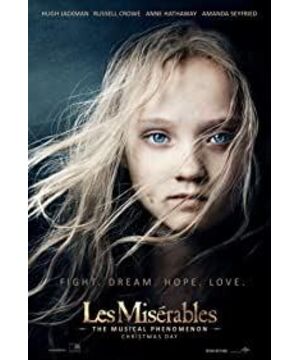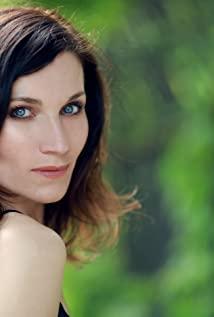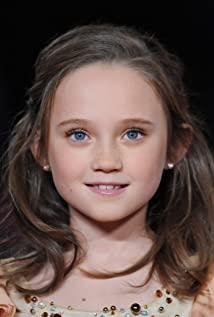Diderot was the leader of the French Enlightenment movement in the 18th century and made outstanding contributions in the field of drama theory. Before him, dramas were classified according to the distinct way of tragedy and comedy since Aristotle, while Diderot put forward the concept of "drama" that broke the boundary between tragedy and comedy in the context of the Enlightenment. .
Hugo is the father of French romantic drama. In terms of the interweaving of sorrow and joy, the ideas of the two are in the same line. Hugo is more than half a century later Diderot and is one of Diderot's outstanding successors. It is reflected in the masterpiece "Les Miserables".
In 2012, the musical version of "Les Miserables" was put on the big screen. In the process of appreciating this film, I found that the arrangement of the plot, the shaping of the characters, and the rendering of the situation were branded with Diderot's thoughts everywhere. , so I have to sigh the great power of Diderot as a drama theorist of "creating a generation of ethos". The following is a brief explanation of several elements in Diderot's dramatic thought combined with the film.
1. Characters
Neoclassicalists before Diderot believed that the characters in tragedy must be emperors, generals, princes and nobles, and describe their elegance and loftiness; comedy is the use of exaggeration, satire and other techniques to portray the people at the bottom as ridiculous character of. Diderot broke this boundary and proposed that the "drama" should be intertwined with joys and sorrows, replacing the nobles with the images of citizens, and reflecting their moral ideals.
The character setting of "Les Miserables" is completely in line with Diderot's claims. The protagonist, Jean Valjean, is neither a nobleman nor a buffoon, but a commoner; Fantine is a factory worker who became a prostitute; Javert is a policeman who sticks to his principles; Marius is a revolutionary youth. The only harlequins are the hotel owner and his wife. In the play, they not only play the role of entertainment, but have multiple roles of brightening the tone, adjusting the atmosphere, connecting the plot, and satirizing the current situation.
2. Real
Faced with the over-carving of upper-class figures with wigs and makeup in the drama at that time, Diderot shouted, "Be real!" He believed that the real, simple nature should not be found in the Louvre, but should be Find it in churches, taverns, streets, markets. On this issue, the content of Les Misérables closely corresponds to Diderot's thoughts - Jean Valjean was influenced by the bishop in the church after his escape, the cheerful and lively singing and dancing scene of the hotel owner and his wife, the slum street The chorus At the End of the Day, street fighting in the Great Revolution, points to Diderot's point of view - "truth is beauty".
3. Contrast
"Contrast" is an important category of Diderot's drama theory. The contrast in traditional works is generally a very mechanical contrast of two characters, such as irritable and gentle, noble and vulgar, etc. Diderot thinks that Too simplistic, he said: "The real contrast is the contrast between character and situation, between different interests."
This theory is best reflected in the comparison of the positions of Jean Valjean and Javert in Les Misérables. Jean Valjean is a positive person, but is Javert a bad person? no. As a policeman, Javert was very loyal to his duties, and he also showed his persistence and belief in his long-term pursuit of Jean Valjean. Finally, after he was released by Jean Valjean, he could not bear the long-term persistence in his heart. The fierce conflict between the values and the grace of the "sinner", he chose to commit suicide, and used his life to complete his inexorable defense of the law. It has to be said that this is also a positive image. However, why is there a life-and-death struggle between the two positive images? This is the thought-provoking point of the plot. The imperfection of the law, the differences of classes, and the various conflicts reflected in the difference of values are all in Javert's impassioned Stars and Javert and Jean Valjean's duet The Confrontation be manifested. It is worth mentioning that the last few lines of Javert in the duet You know nothing of Javert, I was born inside a jail, I was born with scum like you, I am from the gutter too. It shows that Javert is probably out of right He grew up hating the environment and became a policeman. Because he saw too much dirt and chaos, he had this kind of "spiritual cleanliness" concept of good and evil. He insisted on saying Men like you can never to Jean Valjean. change, it must be brought to justice. This contrast between Javert and Jean Valjean inserts another contrast between Javert's origin and faith.
4. Situation
Diderot believes that the character's character is determined by the situation and reflected by the situation. From this perspective, "Les Miserables" can also find many shining points, especially the combination of the film's picture and the musical's singing, which greatly strengthens the art of the film. Infectivity.
There are a lot of situations I like in this movie, so I'll pick a few briefly.
①Introduction——Look Down, Look Down
It was dark, windy and rainy, and the waves were raging, accompanied by a majestic symphony. The camera shot from far to near, starting from a huge ship and slowly zooming in. The audience saw the ragged prisoners are struggling to pull the fiber rope and sing in their mouths. No God above, and hell alone below...You're standing in your grave...The prisoners are ragged and dirty, but in this huge setting, they show a noble personality. This scene is reminiscent of "The Tracker on the Volga", but it is more grand than the former scene, and the emotions of grievance and resentment are stronger, which can be said to set the tone of the whole film.
②In the hotel - the setting of the Master of the House
situation is very unique. Before it, the encounters of Jean Valjean, Fantine, and Cosette were all miserable and serious. However, at this stage, the style is different. The rhythm is lively, witty and humorous, and the music and lyrics are extremely comical and ironic. It not only reflects the reality that some people in the society at that time were chasing petty profits by any means, but also brightened the mood and made people laugh. Without losing the judgment of right and wrong in the voice, he knew that the innkeeper and his wife were villains, but they downplayed their odiousness appropriately.
③End, life and death are on the same stage - Do You Hear the People Sing
At the end of the movie, the theme music plays, the living and the dead reunite on the fort, chorus - Do you hear the people sing? Say, do you hear the disand drums? It is the future that we bring when tomorrow comes... People's expressions are joyful and firm, sweeping away the dark tones of the movie, mainly red, white and blue, which symbolize France, which is one more tragic and passionate than before. With solemnity and hope, the film drew a successful conclusion.
The film "Les Miserables", I have watched it five times before and after, but I still shed tears when I rewatch it, and my heart is full of emotions when it is heroic. It's a criss-crossing musical, a gigantic tome of France's golden years, an epic of love, grace and redemption.
View more about Les Misérables reviews










